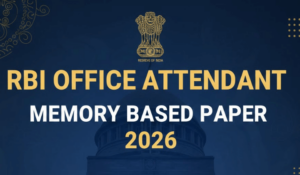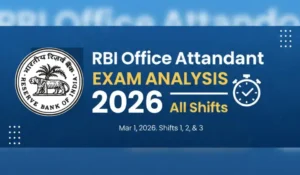Introduction of the GST is an important reform and is a standard policy recommendation for every country going in for the structural adjustment programme of the International Monetary Fund. This has been a major money spinner and a source of productivity gain. According to Michael Keen, of over 165 countries which have adopted GST in one form or another, only five have repealed it (Belize, Ghana, Grenada, Malta and Vietnam), but have reintroduced the tax later. The GST has taken centre-stage in many countries and is considered important in view of the competitive reduction in corporation tax rates due to high mobility of capital. It is also true that there is no “one-size fits all” GST and each country has to adopt the structure depending on political bargains and operational feasibility. It is a major reform, and even as every country makes a lot of preparations before it is introduced, it takes time to smoothen the rough edges and settle contentious issues.
International experience shows that some features of the reform are inherently desirable. It is important not to have too low thresholds. In fact, reasonably high thresholds will reduce the compliance burden to a large number of small businesses without much impact on revenue. Richard Bird and Pierre-Pascal Gendron, after a detailed examination of a number of countries adopting GST, suggest that in developing countries, a threshold closer to $100,000 would eliminate 75% of the taxpayers with a revenue loss of less than 4%. (See Bird and Gendron, The VAT in Developing and Transitional Countries, Cambridge University Press, 2007). Another desirable feature of a successful GST is to have fewer rates. Multiple rates create classification problems, are harder to administer and would require the general rate of tax to be higher. It would also invite a lot of lobbying by special interest groups. Third, it is important to prepare well before the plunge. Most countries take at least two years to prepare for the introduction of reform to ensure a smooth transition. This is particularly necessary for developing and testing the technology platform, educating the tax collectors and tax payers and to avoid any anomalies in the structure of the tax.
1. Repeal [ri-peel]
Verb: to revoke or withdraw formally or officially; to revoke or annul (a law, tax, duty, etc.) By express legislative enactment; abrogate.
Noun: the act of repealing; revocation; abrogation.
Synonyms: abolish, abrogate, annul, cancel, dismantle, invalidate, lift, nullify, rescind, reverse, revoke, set aside, void, wipe out, withdraw, backpedal.
Antonyms: allow, approve, build, enforce.
2. One-size-fits-all
Adjective: suitable for or used in all circumstances.
3. Bargain [bahr-guh n]
Noun: an advantageous purchase, especially one acquired at less than the usual cost; an agreement between parties settling what each shall give and take or perform and receive in a transaction; such an agreement as affecting one of the parties.
Synonyms: arrangement, contract, deal, negotiation, pact, transaction, understanding, bond, business, compact, convention, covenant, engagement.
Antonyms: disagreement, misunderstanding, break, rip-off.
4. Feasible [fee-zuh-buh l]
Adjective: capable of being done, effected, or accomplished; probable; likely; suitable.
Synonyms: usefulness, expediency, feasibleness, utility, workability.
5. Contentious [kuh n-ten-shuh s]
Adjective: tending to argument or strife; quarrelsome; causing, involving, or characterized by argument or controversy.
Synonyms: antagonistic, combative, testy, argumentative, belligerent, disagreeable, factious, perverse, petulant, querulous.
Antonyms: agreeable.
6. Inherent [in-heer-uh nt, -her-]
Adjective: existing in someone or something as a permanent and inseparable element, quality, or attribute; inhering.
Synonyms: constitutionally, genetically, intrinsically, naturally, by birth, congenitally, immanently, inseparably, natively.
7. Threshold [thresh-ohld, thresh-hohld]
Noun: the sill of a doorway; the entrance to a house or building; any place or point of entering or beginning.
Synonyms: brink, verge, dawn, door, doorstep, doorway, edge, entrance, gate, inception, origin, outset, point, sill, , t, vestibule.
Antonyms: middle, completion, conclusion, death.
8. Compliance [kuh m-plahy-uh ns]
Noun: the act of conforming, acquiescing, or yielding; a tendency to yield readily to others, especially in a weak and subservient way; conformity; accordance; cooperation or obedience.
Synonyms: conformity, consent, acquiescence, amenability, assent, complaisance, concession, concurrence, deference, docility, obedience, observance, passivity, resignation, submission, submissiveness.
Antonyms: difference, disagreement, refusal, disobedience.
9. Lobby [lob-ee]
Noun: an entrance hall, corridor, or vestibule, as in a public building, often serving as an anteroom; foyer; a large public room or hall adjacent to a legislative chamber; a group of persons who work or conduct a campaign to influence members of a legislature to vote according to the group’s special interest.
Verb: to solicit or try to influence the votes of members of a legislative body.
Synonyms: corridor, doorway, foyer, hall, hallway, porch, vestibule, waiting room, antechamber, gateway, passage, passageway.
10. Anomaly [uh-nom-uh-lee]
Noun: a deviation from the common rule, type, arrangement, or form; an anomalous person or thing; one that is abnormal or does not fit in; an odd, peculiar, or strange condition, situation, quality, etc; an incongruity or inconsistency.
Synonyms: aberration, abnormality, deviation, inconsistency, irregularity, oddity, rarity, departure, eccentricity, exception, incongruity, peculiarity, unorthodoxy.
Antonyms: conformity, normality, regularity, sameness.





 RBI Office Attendant Memory Based Paper ...
RBI Office Attendant Memory Based Paper ...
 RBI Office Attendant Exam Analysis 2026,...
RBI Office Attendant Exam Analysis 2026,...
 RBI Office Attendant Exam Analysis 2026,...
RBI Office Attendant Exam Analysis 2026,...









